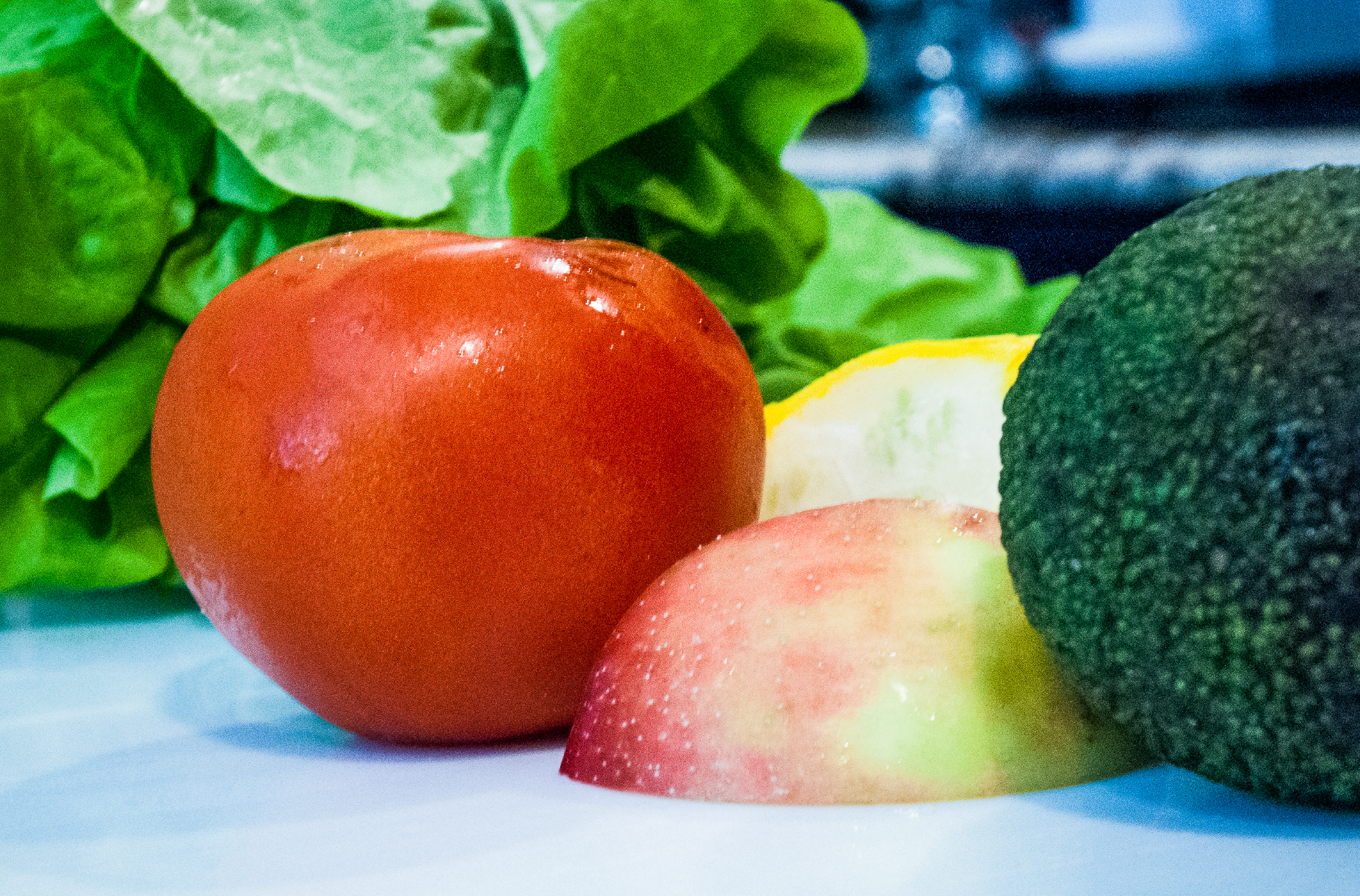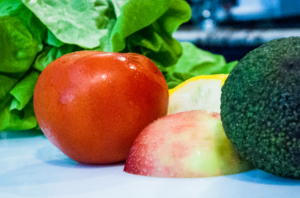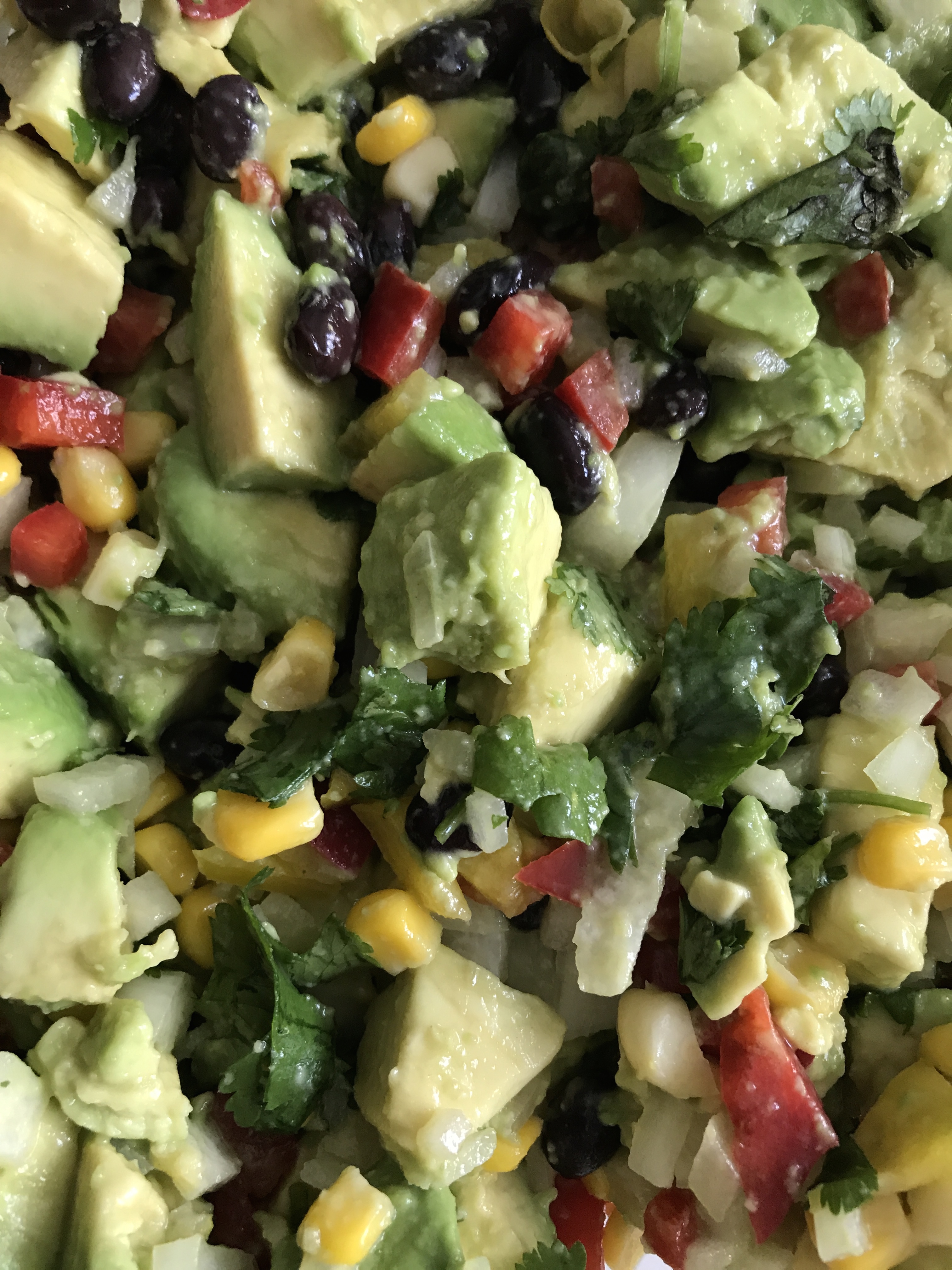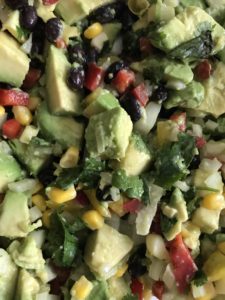IT’S TIME FOR SPRING CLEANING.. and I am not talking about your house! I am talking about cleaning up your food intake and lifestyle!


It is a great time for some Spring “Cleaning!” And I am not only talking about your house… I am talking about the food you eat. Are you fueling your body with nutrient dense foods on a daily basis? Nutrient dense foods provide us with vitamins and minerals, fiber, lean protein, and unsaturated fats AND are low in calories. You get more nutrition bang for your buck. Let’s compare bread for example. White bread has 70 calories per slices and very little vitamins and minerals. A slice of whole grain bread has the same amount of calories but has four times the amount of potassium and magnesium and three times the amount of zinc. Whole grain bread is also higher in dietary fiber which is beneficial for heart health, gut health and disease prevention.
Do you think you consume enough fruits and vegetables? According to the Centers for Disease Control (CDC), 1 in 10 Americans do not consume enough fruits and vegetables. The Federal Guidelines recommend 1.5-2 cups of fruit per day and 2-3 cups of vegetables. Through my functional nutrition studies, I am learning that we require much more than the guidelines recommend! Why?
- Not only do Americans not eat enough fruits and vegetables, but as we age, our body’s ability to absorb these nutrients is decreased.
- Soil depletion and nutrient depletion occurs due to farming techniques and pesticides. These chemicals have even altered our gut flora!
- Disease and inflammation change the way our bodies absorb and utilize nutrients.
- Genomics- this is a hot topic of research right now.
So how do we make sure we are getting all of the nutrients we need? Focus on REAL, WHOLE, FRESH FOOD. Research has shown that the Mediterranean diet lowers your risk of heart disease, cancer, Parkinson’s and Alzheimer’s. It is rich in fruits, vegetables, whole grains, beans, fish, chicken, and good fat. There is a lot of variety to choose from. I think that focusing on these foods will get you off to a great, clean start!
The Mediterranean Diet emphasizes (per Mayo clinic):
- Eating primarily plant-based foods, such as fruits and vegetables, whole grains, legumes and nuts
- Replacing butter with healthy fats such as olive oil and canola oil
- Using herbs and spices instead of salt to flavor foods
- Limiting red meat to no more than two to three times a month
- Eating fish and poultry at least twice a week
- Enjoying meals with family and friends
- Drinking red wine in moderation (optional)
- Getting plenty of exercise
To get your clean eating started, choose 25 nutrient dense foods for you and your family to focus on over the next 2 weeks. Interchange these foods into different recipes. Go to your local farmer’s market for fresh, seasonal produce. Here are my top 25 nutrient dense foods:
- Blueberries
- Gluten-free bread
- Quinoa
- Strawberries
- Avocado
- Black beans
- Almonds
- Spinach
- Kale
- Tomatoes
- Brown rice
- Red bell peppers
- Olive oil
- Cilantro
- Carrots
- Plain greek yogurt
- Plain gluten-free oatmeal
- Chia seeds
- Jicama
- All-natural nut butter
- Sweet potatoes
- Apples
- Mango
- Corn
- Lime
Sample meal plan using some of my clean foods:
Breakfast: Bowl of plain oats topped with blueberries, almonds and cinnamon (any fresh herbs and spices allowed)
Lunch: Homemade chunky guacamole (see picture) with gluten-free bread
Dinner: Brown rice with roasted zucchini, tomatoes, carrots, spinach and toasted almonds
Snacks: Apple with nut butter and frozen greek yogurt pop
And of course lots of water!!!
Now you make a list of 25 clean foods for you and your family and see if you can stick to it for two weeks!
Some other healthy tips for living a clean lifestyle:
- Fill half of your plate at lunch and dinner with vegetables.
- Choose colorful fruits and vegetables- different colors have different health benefits.
- Add a serving of fruit at breakfast and one for a snack.
- Shop at local farmers markets for seasonal produce at a reasonable price. Local farmer are less likely to use as many chemicals and pesticides on their produce making it a healthier and safer option.
- Add fruit to yogurt, oatmeal, and salads.
- Throw kale or spinach in a smoothie.
- For some good fat, put avocado in your smoothie instead of a banana.
- Make a healthy vegetable soup and add grains and lean protein.
- Have a meatless Monday and try new legumes, pulses, nuts, and nut butters.
- Try fresh herbs in recipes. You can even try growing your own herbs, get those hands dirty!
- Do not drink your calori
 es. Drink water and flavor with fresh fruit, vegetables and herbs for flavor.
es. Drink water and flavor with fresh fruit, vegetables and herbs for flavor. - If you feel you are lacking in certain nutrients, get your levels checked. Some of you may need vitamins and supplements to bridge the gap! Don’t add on vitamins and/or supplements without knowing if you REALLY need them. There is such a thing as too many.
- Exercise daily and enjoy the outdoors. Get some vitamin D from the sun! Choose an exercise routine that you enjoy and set a schedule that you can stick too. Research shows if you aren’t enjoying it, you aren’t reaping any of the benefits!
- Get eight hours of sleep every night. If you aren’t getting good quality sleep, all bets are off as far as your nutrition.
- Wake up every morning with a positive mindset. Tell yourself you are going to fuel your body with the best possible nutrition:).

Chunky guacamole- avocado, cilantro, corn, black beans, jicama, olive oil, lime, red bell pepper, yellow bell pepper- can’t get healthier than this!
Joanne Gibson, RDN, LDN, CLT, CPT
